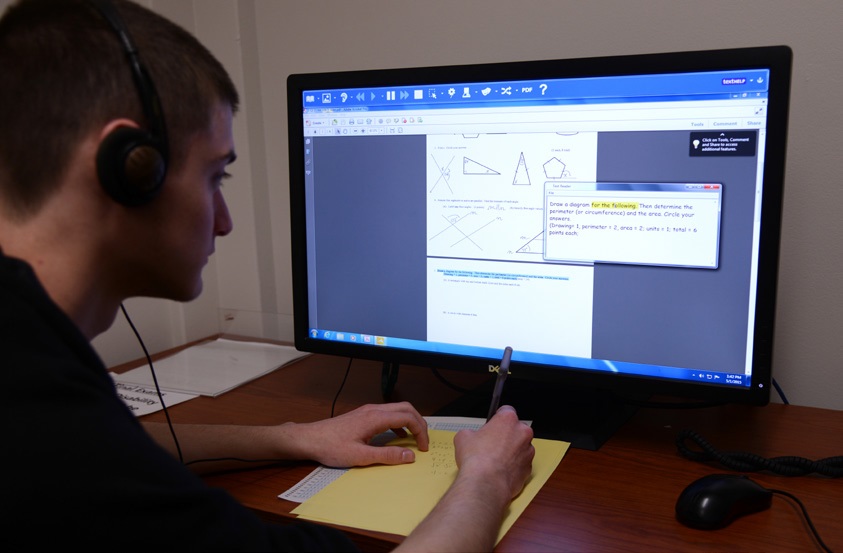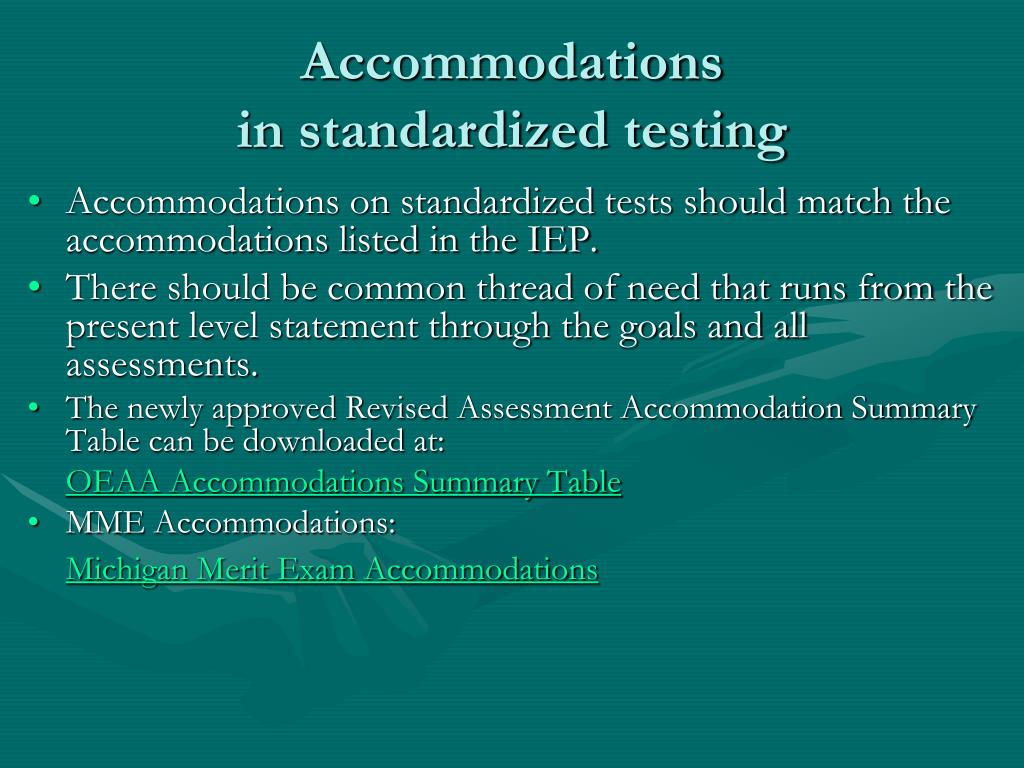

Will a person with a disability be granted a “test exemption” as an accommodation? Generally, no. For example, an employee must be able to type 40 words per minute to pass an employment test, but typing is not an essential function of the job. One exception to this rule is a situation where the test standard is arbitrary or is not related to the educational or employment requirements. The test-taker with a disability may need an accommodation to help meet the standard, but the standard does not have to be lowered, changed, or altered. If all test-takers must obtain a certain “passing score,” so must the test-taker with a disability. Will test scores or standards be lowered/changed/altered for person with disability? Generally, no. The test-taker needing an accommodation pays the same cost as any person taking the same test. Do testing accommodations cost the test-taker extra money? No.

The person with a disability is responsible for providing documentation of a disability, and the individual can describe the type of accommodation that will be effective. The individual can also make a request verbally or in writing. Oftentimes, the testing company provides testing accommodation forms to submit. How does a person with disability ask for a testing accommodation? A person with a disability can ask for an accommodation when registering to take a test. Who can ask for accommodations in testing? Individuals with disabilities that inhibit their abilities to take tests can ask for an accommodation.
#Testing accommodations license#
Some examples of exams are: teaching license exams, driver’s license exams, college entrance exams, exams in college or technical school, employment tests, and typing tests. What type of tests will people need accommodations for? A person with a disability can ask for an accommodation on any exam. The scribe simply writes the test-taker’s answers down on the test or answer sheet. The scribe does not create answers for the test-taker or help the test-taker identify correct answers. What is a scribe? A scribe is a person who writes down, or otherwise records, the test-taker’s responses. A reader reads the test directions, questions, and answer choices to the test-taker. A reader does not interpret, re-word, or explain the test. This person should be familiar with the terminology or language used on the test. What is a reader? A reader is a person who reads the test to the test-taker. Common examples of extended time include: time and a half, double time, and unlimited time. The amount of extended time should be correlated to the test-taker’s disability or limitations.

What is extended time? Extended time means allowing the test-taker extra time to complete the test. Alternative format may be: large print, Braille, color-coded text, audio (reader, tape/cd, or computer). What is alternative format? Alternative format is any format that is different from the existing test. For more information on examinations or courses, read the Department of Justice’s Title III Technical Assistance Manual, Chapter 4.6.For more information on employment testing, read the EEOC’s Title I Technical Assistance Manual, Chapter 5.6.These responses are not guidance from the Equal Employment Opportunity Commission and are not intended to be legal advice.

A JAN consultant who is familiar with various types of disabilities and who is familiar with the ADA and other disability legislation crafted the responses. The following questions are typical testing accommodation questions received at JAN’s national toll-free hotline. Individuals with disabilities who are protected by disability legislation (such as the Americans with Disabilities Act and the Rehabilitation Act) can ask for, and receive, accommodations in order to take tests. These individuals may need accommodations when taking employment exams, standardized tests, licensure exams, and classroom exams. Individuals with disabilities can have many different types of limitations that affect their abilities to take tests.


 0 kommentar(er)
0 kommentar(er)
